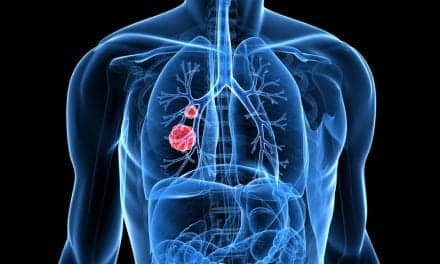A study published in Lancet Oncology reveals that the median overall survival rate for patients with stage IV squamous non-small cell lung cancer was improved when the drug necitumumab was administered along with chemotherapies gemcitabine and cisplatin. The study, known as SQUIRE, was a phase III clinical trial with 1,093 participants and included 184 investigative sites in 26 countries. With the addition of necitumumab, the median overall survival was 11.5 months compared with median survival of 9.9 months with the two chemotherapies alone.
Patients with stage IV squamous non-small cell lung cancer were eligible for the study and the CU Cancer Center performed biomarker analysis of tissue samples, evaluating patient tumor samples for amplification of the EGFR gene. According to a Science Newsline report, necitumumab uses a novel approach to activate the immune system against tumor tissue. The drug uses “fully human” antibodies, which are produced without the hybridization with mouse DNA.
This approach, though technically challenging, may help patients treated with necitumumab avoid some of the side effects associated with drugs based on chimeric antibodies, as indicated on the Science Newsline news report.
Fred R. Hirsch, MD, PhD, one of the trial’s co-principal investigators, states, “”We haven’t seen any new drug approvals in first-line squamous lung cancer in many, many years. I’m very excited to see a new agent that has survival benefit in this space.” Hirsch adds, “While we saw more side effects in the group treated with necitumumab in combination with the two chemotherapies, we found that the safety profile of necitumumab plus gemcitabine and cisplatin was acceptable and in line with expectations.”
The Science Newsline report notes that regulatory submission of necitumumab for approval by the Food and Drug Administration, with a decision expected soon. Hirsch says, “This is an improvement. Based on this large prospective study in first-line therapy of squamous lung cancer, a subtype of lung cancer where there is an urgent unmet need for treatment improvement, the drug warrants approval.”
Source: Science Newsline










